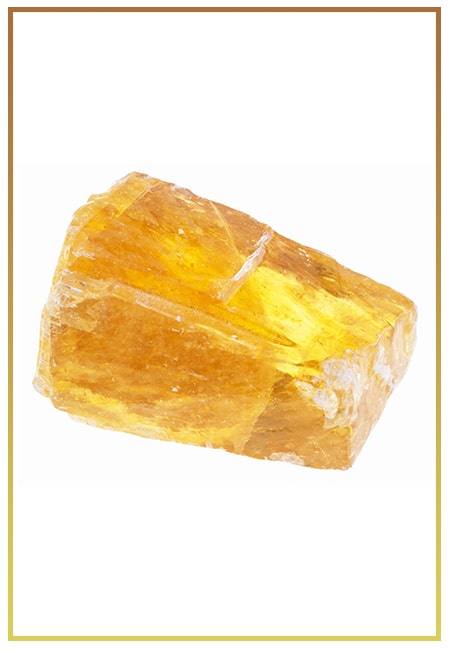- Written By Team DWS
- Festivals
- August 27, 2024
Celebrating Nature: The Importance of National Wildlife Day
Nature, with its intricate ecosystems and stunning biodiversity, is a treasure that has captivated humanity for millennia. To honor this precious gift, every September 4th, we celebrate National Wildlife Day. This special day not only serves as a reminder of the beauty and complexity of the natural world but also emphasizes the urgent need for conservation efforts to protect our wildlife and their habitats. In this blog post, we will explore the significance of National Wildlife Day, the importance of wildlife conservation, the challenges faced by wildlife around the globe, and how individuals can contribute to the cause.
-dws638603322701922025.jpg)
A History of National Wildlife Day
National Wildlife Day was founded in 2005 by animal advocate and pet lifestyle expert Colleen Paige to highlight the challenges faced by endangered species and encourage initiatives for wildlife conservation. The date was chosen to honor the legacy of two influential conservationists—James John Audubon and Steve Irwin—who dedicated their lives to the study and protection of wildlife.
James John Audubon is best known for his stunning depictions of birds in North America and his groundbreaking work, "The Birds of America," which detailed the lives of over 400 species. His passion for the natural world helped lay the foundation for future wildlife conservation efforts. On the other hand, Steve Irwin, also known as the "Crocodile Hunter," inspired millions through his adventurous television programs, showcasing wildlife’s beauty and fragility.
Celebrating National Wildlife Day allows us to pay homage to these pioneers and reflects our collective responsibility to protect the wild creatures that inhabit our planet.
The Importance of Wildlife Conservation
Wildlife conservation is essential for several reasons:
Biodiversity Supports Ecosystem Health
Every species plays a role in its ecosystem, contributing to the balance and functioning of its environment. For instance, predators help control the population of prey species, while plants provide oxygen, food, and habitat for a vast array of organisms. Losing even one species can cause a ripple effect, leading to unforeseen consequences for other organisms and the ecosystem as a whole.
Economic Value
Wild animals and their habitats contribute significantly to the economy. Ecotourism, which revolves around visiting natural areas to observe wildlife, generates billions of dollars annually. This revenue supports local communities and promotes conservation efforts. Additionally, wildlife provides essential resources, such as food, medicine, and materials, which sustain human life.
Cultural Significance
Wildlife is woven into the cultural and spiritual fabric of societies worldwide. Many indigenous communities hold deep connections to the land and its inhabitants, and their customs and traditions often revolve around the reverence of animals and plants. Protecting wildlife helps preserve cultural heritage and promotes the sustainable use of natural resources.
Climate Regulation
Wildlife plays a crucial role in regulating the climate. Forests, wetlands, and oceans act as carbon sinks, absorbing CO2 from the atmosphere and helping mitigate climate change. Many animal species also contribute to nutrient cycling and pollination, processes vital for maintaining healthy ecosystems and agricultural systems.
Challenges Facing Wildlife
Despite the importance of wildlife conservation, numerous challenges threaten the survival of countless species. Here are some key issues:
Habitat Destruction
Urbanization, agriculture, logging, and infrastructure development have resulted in significant habitat loss for many species. When animals lose their homes, they struggle to survive, leading to population declines and, in some cases, extinction.
Climate Change
Climate change is one of the most pressing threats to wildlife. Rising temperatures, changing precipitation patterns, and extreme weather events disrupt habitats, force species to migrate, and alter food availability. Some species may adapt, but many are not able to keep pace with the rapid changes.
Pollution
Pollution from plastics, chemicals, and waste products severely affects wildlife. Contaminated water sources harm aquatic species, while pesticides can decimate entire populations of insects and birds. Additionally, marine animals often mistake plastic debris for food, leading to severe health issues and often death.
Poaching and Illegal Wildlife Trade
The illegal wildlife trade continues to be a significant issue. Poachers target endangered species for their valuable parts, such as ivory, skins, and bones. This not only threatens individual species but also destabilizes entire ecosystems. Efforts to combat poaching are essential for preserving wildlife populations and maintaining biodiversity.
Invasive Species
Invasive species often outcompete native species for resources, leading to declines or extinction. The introduction of non-native species, whether intentional or accidental, can drastically alter ecosystems, making it vital to control their spread.
The Role of Education and Advocacy
Education and advocacy play pivotal roles in wildlife conservation. National Wildlife Day serves as an excellent opportunity to raise awareness about the challenges wildlife face and to inspire individuals to take action. Schools, organizations, and communities can hold events that inform the public about the importance of preserving natural habitats and protecting endangered species. Engaging storytelling, hands-on activities, and interactive workshops can ignite a passion for wildlife conservation, empowering people of all ages to make a difference. By fostering a sense of stewardship, we can cultivate a generation that values biodiversity and actively contributes to the well-being of our planet's ecosystems.
The Role of Education in Wildlife Conservation
- Awareness Creation: Education helps to inform people about the ecological importance of wildlife and the threats they face, such as habitat loss, poaching, and climate change.
- Skill Development: Programs can equip individuals with knowledge and skills necessary for conservation efforts, such as species identification, habitat restoration, and sustainable practices.
- Behavioral Change: Educational initiatives can influence public attitudes and behaviors toward wildlife conservation, promoting responsible actions, such as eco-friendly practices and species protection.
- Youth Engagement: Schools and camps aimed at younger audiences foster a sense of responsibility and stewardship toward nature, encouraging future generations to prioritize conservation.
The Role of Advocacy in Wildlife Conservation
- Policy Influence: Advocacy efforts push for stronger environmental regulations and conservation policies, aiming to protect endangered species and their habitats.
- Community Mobilization: Advocacy can rally community support for conservation initiatives, leading to collective action that significantly impacts wildlife protection.
- Funding and Resources: Advocates help secure funding and resources for wildlife conservation through grant writing, fundraising, and partnerships with governmental and non-governmental organizations.
- Public Engagement: Through campaigns and outreach programs, advocacy raises public interest and fosters a culture of conservation, ensuring that wildlife issues remain in the public discourse.
National Wildlife Day: An Opportunity for Action
- Awareness Events: National Wildlife Day can serve as a platform for schools, organizations, and communities to host workshops, talks, and community clean-ups aimed at raising awareness about local wildlife and conservation issues.
- Collaborative Efforts: The day encourages partnerships between various sectors—educational institutions, non-profits, and local governments—to share resources and knowledge on wildlife conservation.
- Inspiration for Action: By spotlighting the challenges and successes in wildlife conservation, National Wildlife Day inspires individuals and groups to participate actively through volunteering and advocacy efforts.
- Celebration of Biodiversity: It’s also a day to celebrate biodiversity, highlighting the wonders of local wildlife and emphasizing the need to protect their habitats for future generations.
-dws638603322817557187.jpg)
In Conclusion
National Wildlife Day serves as a vital reminder of the intrinsic value and beauty of the natural world, urging us to take action in the fight for wildlife conservation. As we honor the pioneering work of conservationists, we are also called to confront the challenges that wildlife faces, from habitat destruction to climate change. By fostering awareness, education, and advocacy, we empower individuals and communities to take meaningful steps towards preserving biodiversity. Let us celebrate National Wildlife Day not just as a day of recognition, but as an opportunity to commit ourselves to the protection and preservation of our planet's invaluable wildlife for generations to come.
Popular on Blogs

Black Tourmaline: Meaning, Healing Properties, Fascinating Facts, Powerful Attributes, Versatile Uses, and Beyond
September 05, 2023 / BY Team DWS
Black Tourmaline, also known as Schorl, is a highly revered crystal with incredible metaphysical properties. It derives its name from the Dutch word "turamali," meaning "stone with ..

Carnelian Stone: Meaning, Healing Properties, Power, Facts, Color, Uses and More
December 26, 2023 / BY Team DWS
Carnelian is a vibrant and captivating gemstone that holds a plethora of meanings, healing properties, and powers. Its warm and fiery energy makes it a popular choice among crystal ..

Citrine: Exploring its Meaning, Healing Properties, Fascinating Facts, Powers, Versatile Uses, and Much More
November 18, 2023 / BY Team DWS
Citrine, with its warm golden hues, has captured the attention and imagination of people for centuries. This beautiful gemstone, commonly associated with wealth and prosperity, hol ..

Black Onyx: Unveiling the Meaning, Healing Properties, Fascinating Facts, Powerful Attributes, Versatile Uses, and Beyond
July 25, 2023 / BY Team DWS
Black Onyx, a striking gemstone admired for its deep black hue and elegant appearance, has captivated people for centuries. In this comprehensive guide, we will delve into the mean ..

Unveiling the Mysteries of Turquoise Stone: Exploring its Meaning, Healing Properties, Power, Facts, Color, Uses, and More
December 05, 2023 / BY Team DWS
Turquoise, with its captivating blue-green hue, has been adorning jewelry and artifacts for centuries. This striking stone has a rich history, rich symbolism, and a plethora of int ..

The History Behind The Popularity of Red Agate
December 23, 2022 / BY Team DWS
An Agate is a type of magma rock that takes many years till it is washed out naturally into the water. And that is the reason this stone has elements of water. This beautiful stone ..

Bloodstone: Unveiling the Meaning, Healing Properties, Facts, Powers, Uses, and More
August 21, 2023 / BY Team DWS
Bloodstone, with its captivating deep green color with specks of red, is a mesmerizing gemstone that has fascinated civilizations for centuries. It possesses unique healing propert ..

Plan a Perfect Valentine's Week with Our Valentine Week List 2025
January 22, 2024 / BY Team DWS
Valentine's Day is undoubtedly the most romantic day of the year, but we believe that one day is just not enough to express your love and make your partner feel special. That's why ..


